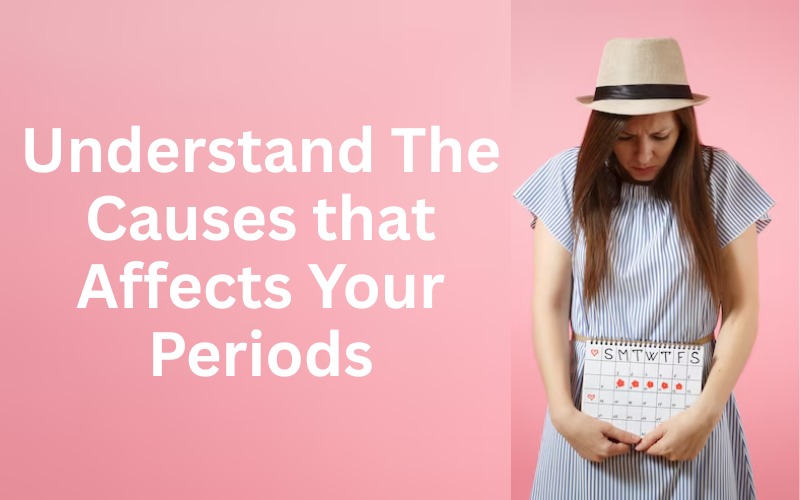Period irregularities are common. On the other hand, significant or frequent fluctuations in a person’s menstrual cycle could be a sign of an underlying medical issue. Fibroids, stress, and other factors are potential reasons for irregular periods.
Below are some potential causes of irregular periods that you should know and treat well. To know about the abnormality occurrence in your periods, you should go with the Irregular Periods in Hindi blogs.
1. Pregnancy
Periods are stopped during pregnancy. The first indication may be a missed period or spotting in place of a period. Additional indicators of an early pregnancy could be:
- Morning Sickness
- Nausea
- Sensitivity to Smells
- Breast Tingling or Tenderness
- Fatigue
2. Breastfeeding
One hormone that contributes to the production of breast milk is prolactin. Additionally, it can decrease ovulation, particularly in those who breastfeed their babies exclusively and regularly throughout the first several months of their lives. This implies that a person might not experience menstruation throughout this period.
This is recognised by doctors as lactational amenorrhoea. It’s not dangerous. Usually, menstruation resumes soon after a person stops breastfeeding or begins to do so less often.
3. Perimenopause
The first stage of menopause, known as perimenopause, usually starts in a person’s 40s and lasts for 4 to 8 years before menopause begins.
The menstrual period may lengthen or shorten at different times throughout the perimenopause. Periods eventually become less frequent and eventually cease when menopause sets in.
4. Endometriosis
One in ten females of reproductive age have endometriosis. It results in the growth of the tissue that normally borders the uterus outside of it. Significant discomfort may result from this, particularly during the menstrual cycle.
5. PCOS (Polycystic Ovary Syndrome)
The most prevalent symptom of polycystic ovarian syndrome (PCOS), which is brought on by ovarian cyst growth, is irregular periods. Androgens, or male sex hormones, are frequently found in high concentrations in people with this illness. Ovulation may be stopped as a result, leading to irregular periods.
6. Thyroid Conditions
Thyroid hormones are produced by the thyroid, a butterfly-shaped gland located in the neck. The menstrual cycle is affected by these.
Hypothyroidism, a disorder in which the thyroid gland does not release enough hormones, is characterised by an underactive thyroid. This may result in heavier, longer durations. Weight gain, fatigue, and cold sensitivity are further symptoms.
Hyperthyroidism, or an overactive thyroid, can result in lighter, shorter periods. This illness can also cause anxiety, palpitations in the heart, and unexplained weight loss.
7. Uterine Fibroids
The wall of the uterus may develop growths known as fibroids. Most fibroids don’t have any harmful properties. Anaemia may result from painful, heavy periods experienced by a person with fibroids. They might also encounter:
- Pelvic Pain or Pressure
- Lower Back Pain
- Leg Pain
- Pain During Sex
Other than irregular periods, some people don’t have any symptoms.
8. Cervical and Endometrial Cancer
Unusual uterine bleeding that may resemble a period can be caused by endometrial and cervical malignancies. Bleeding may also be observed after sex or in between cycles.
It is crucial to consult a physician about any unexplained vaginal bleeding because these cancers don’t show many signs in the early stages.




